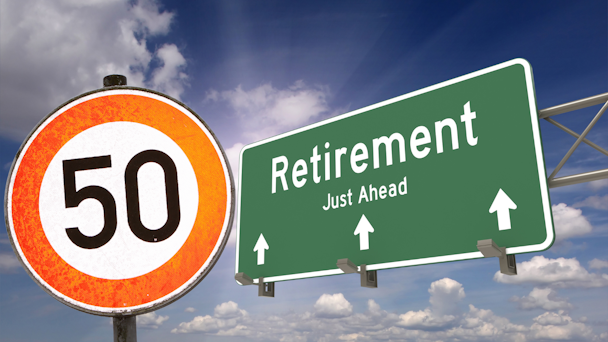Survival of the cheapest: The real reason there’s so few 50-somethings in advertising
BMB’s David Bain declares adland is ‘no home for retirement.’ He argues that it’s not caused by ageism or a perceived lack of TikTok 'skills' but by cold, hard cost-cutting.

In the hazy morning of advertising beginnings (a.k.a. the 90s), I started my career surrounded by a variety of creatures, both exotic and strange. They were unlike me in almost every way - storied, well-heeled, canny and experienced. Crow’s feet and laughter lines marked them as people who had seen a thing or two. They weren’t all eminently senior and frightening. Many were colleagues, not bosses. They were the fifty-somethings.
You probably won’t know what those are if you are in the industry today because the IPA just announced their extinction.
This year’s IPA Agency Census hid a chilling little staff churn statistic. 0% of leavers retired. There were no recorded retirees. That’s right. 0%.
2023 was a year without carriage clocks, fond farewells, and thanks for a lifetime’s hard service at the pencil face. In the UK, over-50s represent just 6% of adland’s workforce, comparing horribly to other sectors (22% are over 50 in finance, 28% in medicine, 30% in science and 35% in law).
Much has been written on ageism in advertising, both in terms of how we represent older consumers and how we winnow out older colleagues but I think much of it looks at things in an overly ideological rather than an economic way.
Ageism is not a disease of agency attitudes; it is a structure of agency finances.
50 somethings have all but disappeared, not because we no longer value experience or because we worry that they won’t get TikTok. Most in our industry don’t make it to retirement because most don’t make it through their forties. A decade or more of downward pressure on fees has made advertising a deeply Darwinian place, driven not by the survival of the fittest or the fastest but the cheapest. And that usually means the youngest.
The costs of this don’t show up on a spreadsheet, they show up incrementally and unseen in an industry that is narrower, greener, and not necessarily more excellent.
What is disappointing in all this is our industry’s collective failure of imagination.
Whatever the problem, redundancy and ‘juniorisation’ is our go-to solution. As far as problems go, ageism is a doozy. Obviously, clients don’t want to pay us more. With each year of experience, costs go up.
Ergo the elbow.
But what if there was a less binary, less all-or-nothing version of dealing with this economic conundrum? What if it was time to have a more honest and inventive conversation about retaining senior talent? Job shares, part-time roles, real flexibility - anything but the brutal financier’s logic of uprooting and replacing with a cheaper model.
Now it’s evening in my adland, I hope to make it to my own carriage clock moment.
But not yet, you fuckers, not just yet.
David Bain is chair and founding strategy partner at BMB.

